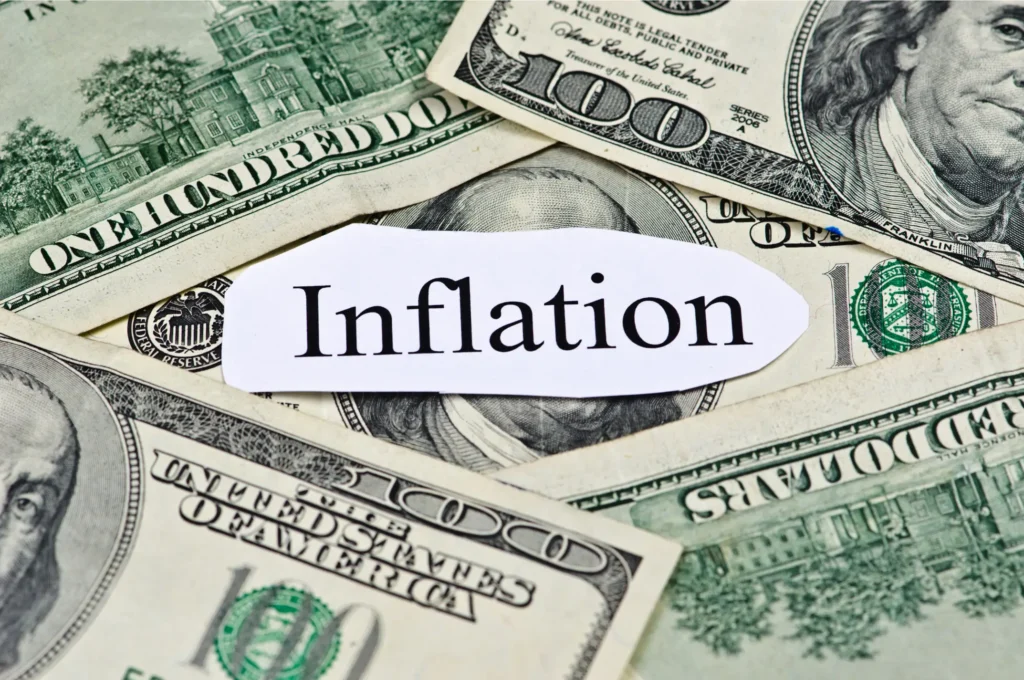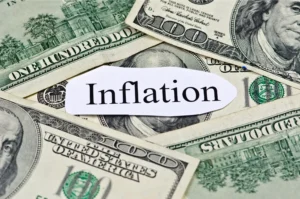In today’s economic climate, the word ‘inflation’ stirs a mix of concern and confusion among consumers and investors alike. As prices climb for everyday goods, from groceries to gas, the ripple effects touch all corners of the economy, including the housing market. With soaring interest rates and high home prices, the prospect of buying a house can seem daunting. However, despite these challenges, purchasing a home today could still be a wise decision for several reasons.
Inflation refers to the general increase in prices and fall in the purchasing value of money. It’s a phenomenon that affects everything, including the cost of real estate. As inflation rises, the value of money decreases, making future dollars worth less. This diminishes your purchasing power over time. In response, central banks, like the Federal Reserve in the U.S., often increase interest rates to temper inflation, which directly impacts mortgage rates.
High inflation often leads to higher home prices. This might sound like a deterrent to buying, but there’s another side to the coin. If you purchase a home during a period of high inflation, you’re effectively locking in the cost of a major asset while prices are expected to continue rising. This means the relative value of your investment could increase as inflation diminishes the value of money.
Real estate historically acts as a robust hedge against inflation. Unlike many other investments, real estate often appreciates in value at a rate that outpaces inflation. This appreciation can offset the erosive effects of inflation on your money. By investing in a home now, you may protect and potentially enhance your wealth.
Owning a home allows you to build equity over time, which is not possible with renting. Each mortgage payment can be viewed as an investment in your future, as it increases your ownership stake in the property. This equity becomes an asset, providing financial security and flexibility. It can be leveraged for loans, used to improve your home, or saved for future financial needs.
If you opt for a fixed-rate mortgage, you can lock in your monthly payments for the duration of the loan, providing predictable and stable housing costs. This is particularly advantageous in an inflationary environment, where rent prices could escalate. While renters may face annual increases in their payments, your mortgage payments will remain consistent.
In many regions, homeowners can benefit from tax advantages not available to renters. For instance, mortgage interest deductions, property tax deductions, and certain home-related expenses can often be deducted, reducing your taxable income. These benefits can make a significant difference in your annual financial planning. Please consult a tax professional.
Deciding whether to buy a home in a period of high inflation involves weighing risks against the potential long-term benefits. It’s crucial to consider your personal financial situation, including your job stability, income predictability, and your ability to manage monthly payments.
Before making a decision, ensure your financial situation is stable. This includes having a reliable income, a healthy amount of emergency savings, and a good credit score to secure the best possible mortgage rate. Think about your long-term personal and financial goals. Buying a home is not just a financial decision but also a commitment to a particular location and lifestyle. Consult with a financial advisor, mortgage banker, and real estate experts. They can provide insights and guidance based on current market conditions and future projections, tailored to your specific circumstances.
While the economic landscape may be challenging, the decision to buy a home should not solely hinge on current inflation rates and housing prices. Real estate remains an asset class that can provide financial security, stability, and potential growth over time. By thoroughly assessing your financial situation, understanding the market, and planning for the future, you can make a well-informed decision that aligns with both your financial and personal aspirations. In the turbulent sea of today’s economy, a home can be an anchor, offering both shelter and financial peace of mind. Questions or comments below.




